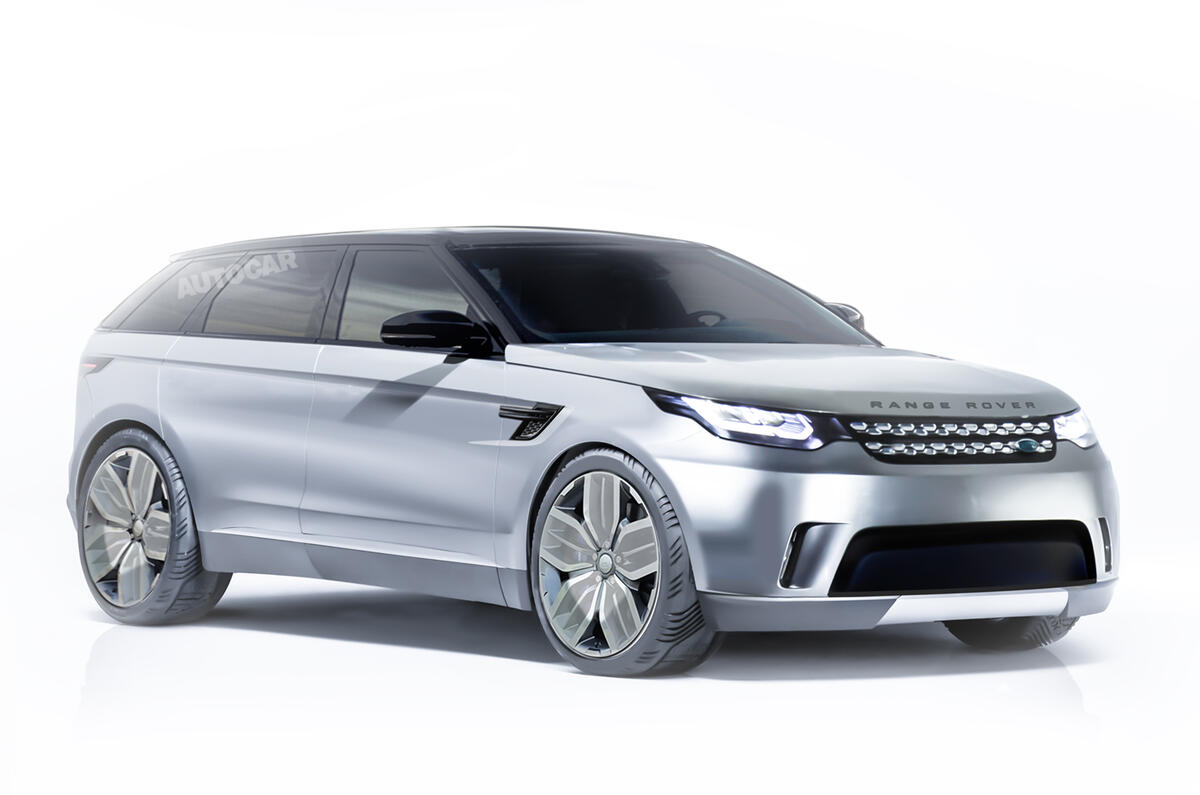Land Rover is considering a new battery-powered Range Rover model to counter the increasing success of Tesla in the luxury car sector, Autocar understands.
The electric Range Rover would probably be more of a low-roofed crossover-style model than a battery-powered version of the current Range Rover.
Jaguar Land Rover group engineering director Wolfgang Ziebart recently hinted at the plans when he spoke to an industry newspaper about JLR’s view on an EV. Ziebart said the market for EVs was split into inner city vehicles and a “second or third car for a wealthy family”.
Zeibart suggested that the latter segment had potential for JLR and that any EV would be the size of a “Jaguar XJ” and aimed at the US and China.
Land Rover design chief Gerry McGovern also strongly hinted in the press recently that the company was working on expanding the Range Rover brand with what he described as “incredibly luxurious, low-slung” Range Rovers. Such a model would be more biased to on-road performance but still capable of cross-country driving thanks to height-adjustable air suspension.
It seems that this crossover model could be sold in conventional petrol and diesel-powered forms, as well as a purely battery-powered guise.
Building a car with a much smaller frontal area would be key to making the battery-powered concept work. Any future electric Range Rover model would have to match the Tesla Model S’s official range of 265 miles to be regarded as competitive, something that would be difficult using a similarly aerodynamically blunt profile to the current car’s.
If the new model gets the go-ahead, it will be based on a version of Range Rover’s aluminium monocoque architecture, modified to accommodate a substantial battery pack. All-wheel drive, delivered by using motors on both the front and rear axles, also seems a certainty.
It is possible that this proposed crossover could share its basic suspension system with the upcoming Jaguar CX-17 crossover, which is likely to have less extreme travel than that which is used on today’s Range Rover and Range Rover Sport.
A more road-biased set-up with air springs would allow the Range Rover EV to run a low ride height at motorway speeds, which would improve aerodynamic performance and stretch the maximum range from a battery pack.
Judging by the pricing for today’s Model S, any Range Rover EV would have to cost as much as £90,000 or more, but it seems that JLR planners are considering offsetting the extra cost over a Tesla by selling such a model with a very high standard specification.
Investing in an electric crossover model could be a significant risk for JLR, but Land Rover bosses clearly have to take the premium EV market seriously, partly as a result of the rise and rise of Tesla.
Financial and market analysts have been suggesting that “greenness” is now seen as an “indivisible part of a premium brand”, especially for customers in the highest income brackets.
The Model S has already become the best-selling luxury model in some of the US’s most affluent postcodes and the car has recently started to outsell established models, such as the Audi A8 and the BMW 7-series, in Europe.




Add your comment
Battery Strategy
I don't get...
bomb wrote:...why a Range
If it's a large low slung awd fastback hatch then imo it would be better suited as a Land Rover/Range Rover product, or even R O V E R with discrete 'Land Rover Design & Engineering' badges on it somewhere, rather than badging it a Jaguar. With that being said, a 5 door Jaguar XE along the lines of BMW's 4-Series Gran Coupe would be pretty tasty.
ev sedan/suv